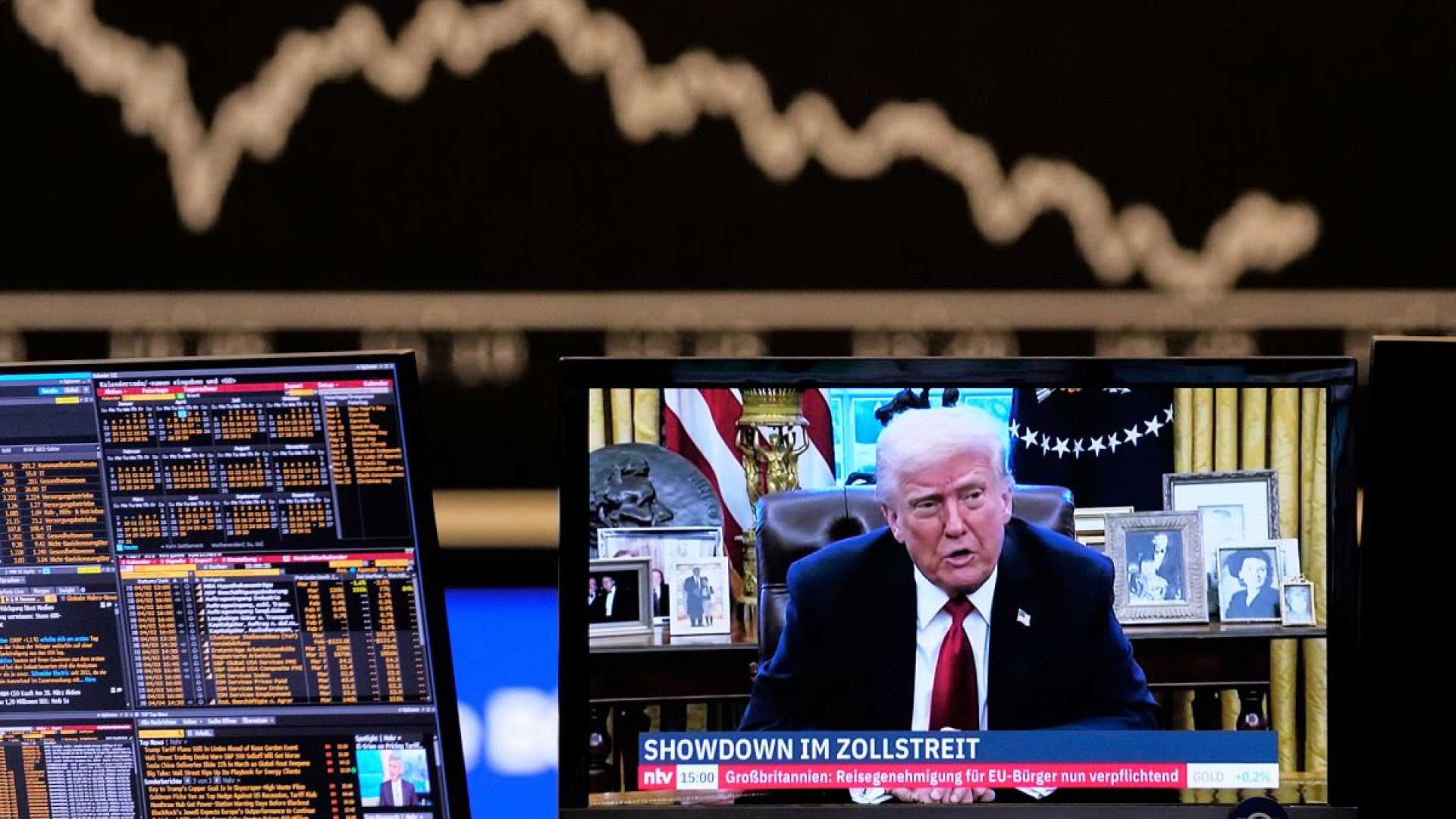Business
Market Plunges as Trump Tariffs Ignite Global Trade War

NEW YORK, April 4 (AP) — Global stock markets faced severe turmoil on Friday after President Donald Trump announced sweeping tariffs, leading to retaliatory actions from China and a fear of a prolonged trade war. The S&P 500 index fell nearly 6%, marking the worst week for U.S. stocks since the pandemic began in 2020.
Trump’s new tariffs, which impose a baseline rate of 10% on imports from various countries, have led to significant losses, particularly affecting sectors reliant on overseas supply chains. In response, China has retaliated with an almost equal 34% tariff on U.S. goods, exacerbating existing tensions between the world’s two largest economies.
The collapse in stock prices, reflected in the 6% decline of the S&P 500 and similar drops in other major indices such as the Dow and Nasdaq, underscores the growing concern among investors regarding the potential impact on global economic stability. The overall market has shed roughly $5 trillion in value since the announcement.
“It’s sort of the worst fears of where the tariff program was headed,” said Rick Meckler, partner at Cherry Lane Investments. “While this may have started as a negotiation tactic, it has escalated into a genuine concern for many companies.” The fallout from these tariffs is expected to raise consumer prices on imported goods and disrupt supply chains.
Despite Trump emphasizing the strength of the U.S. job market and economic resilience, analysts are cautious. JP Morgan analysts have raised the likelihood of a global recession to 60%, warning that the tariffs may push consumer spending down by significantly increasing prices.
In the wake of these declarations, significant players in U.S. markets saw substantial losses, with Apple shares tumbling more than 7%. Retail companies reliant on overseas manufacturing, like Nike, also experienced significant volatility. Economic experts express skepticism regarding the potential benefits of the tariffs, with many suggesting the instability it creates far outweighs any long-term advantages.
“There’s a solid concern regarding how these policies will manifest into actual economic consequences over the coming months,” warned Mike Dickson, head of research and quantitative strategies at Horizon Investments. “We have to consider not just direct price increases but the associated risks to employment and production.”
Meanwhile, the Federal Reserve has signaled its awareness of potential inflationary impacts resulting from the tariffs, heightening discussions around interest rate adjustments. Jerome Powell, the Fed Chair, stated, “We understand the uncertainty that people feel, but it is too soon to predict what the appropriate policy stance should be.”
Consumers are already bracing for increases in everyday items due to the tariff implications. Pat Muscaritolo, an appliance store owner in New Jersey, indicated that customers should rush to make purchases before prices rise, asserting, “I expect costs on refrigerators could jump by 30% or 40%.”
In a broader international context, countries such as the UK and EU have expressed intent to engage diplomatically to curtail escalation, but fears persist that without effective negotiations, circumstances may worsen.
As the global markets continue to adjust to these latest developments, the fundamental goal remains the same: balancing trade relationships while maintaining economic stability amidst unprecedented tariffs. Analysts will be closely monitoring how quickly both governments seek resolutions and the potential ripple effects on global trade.












